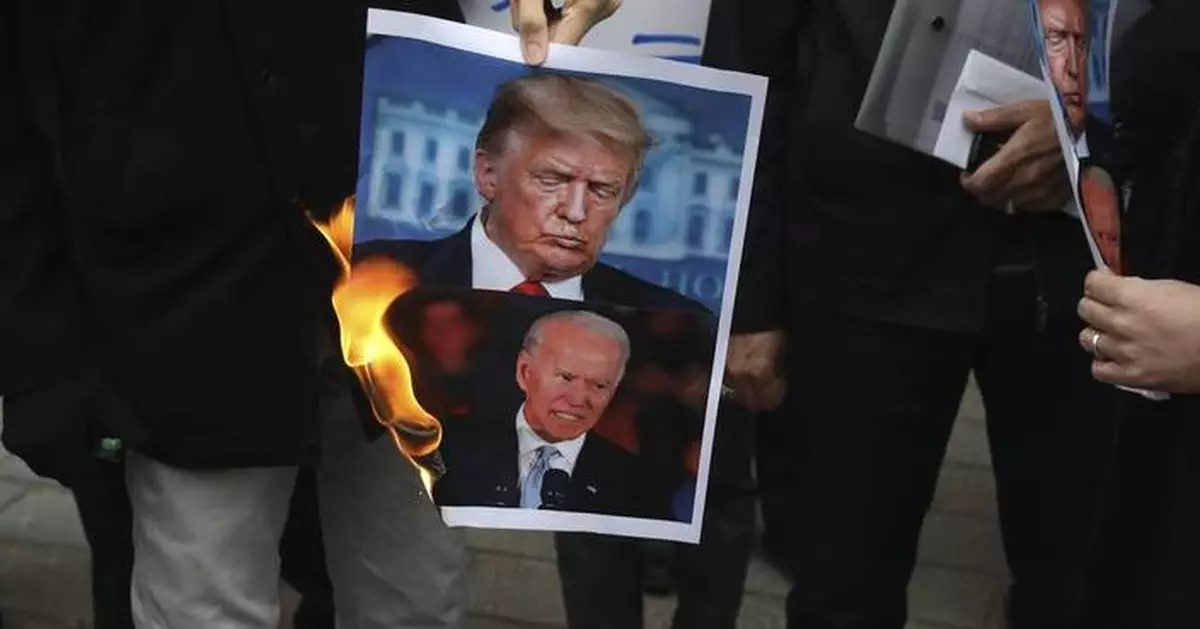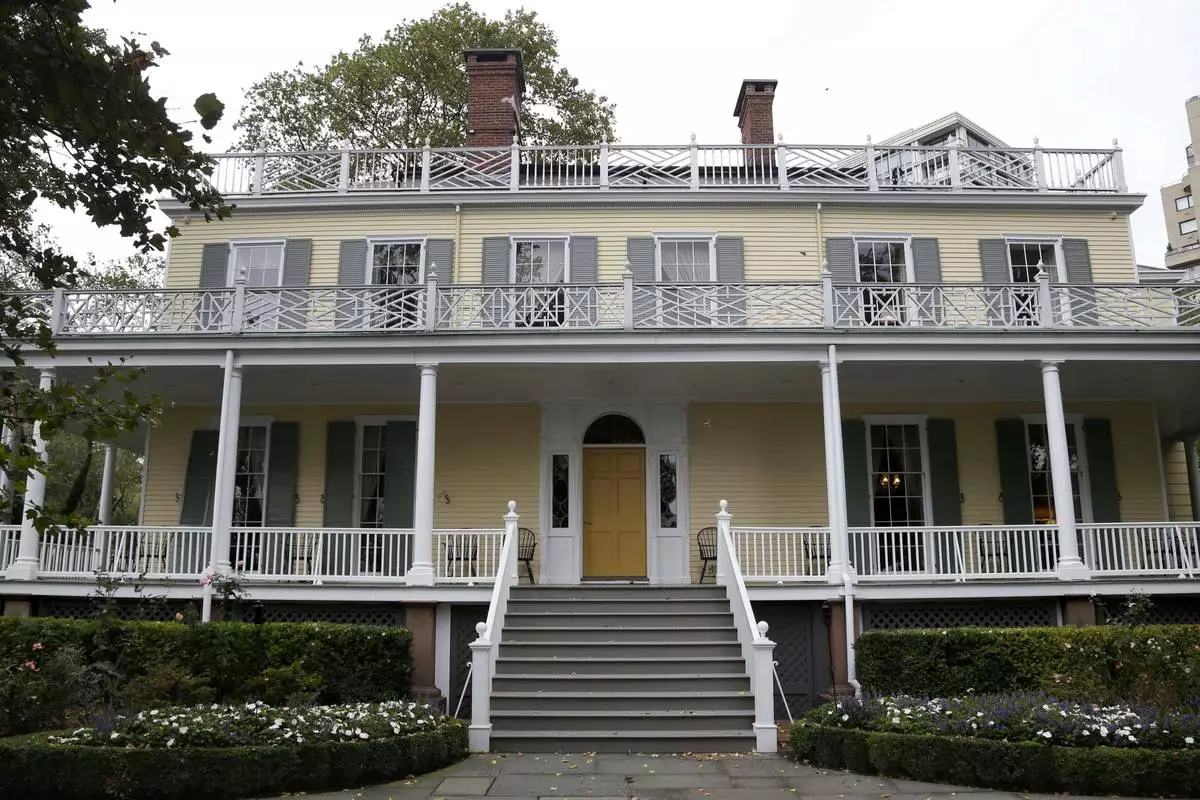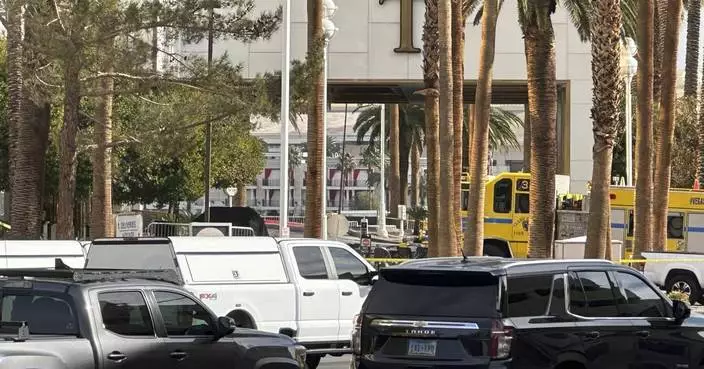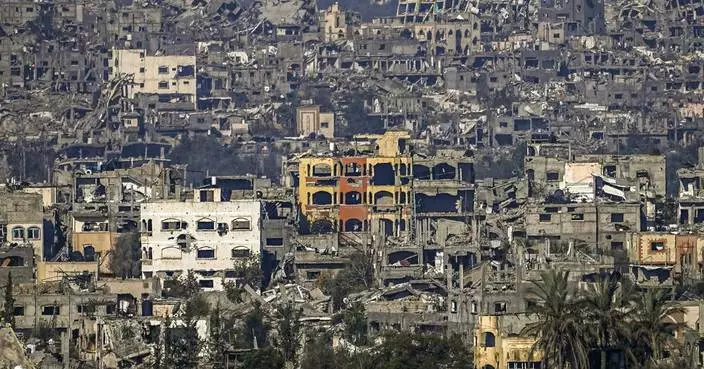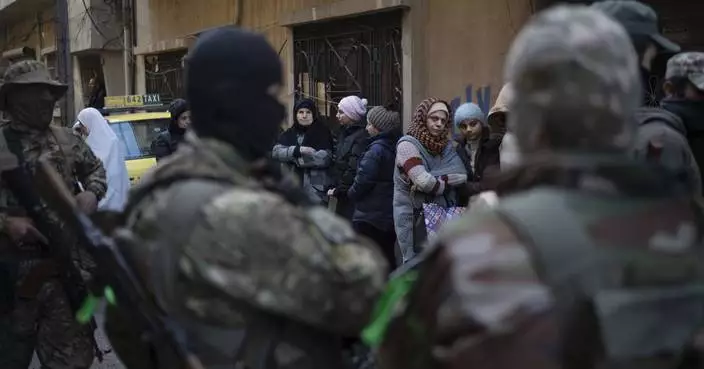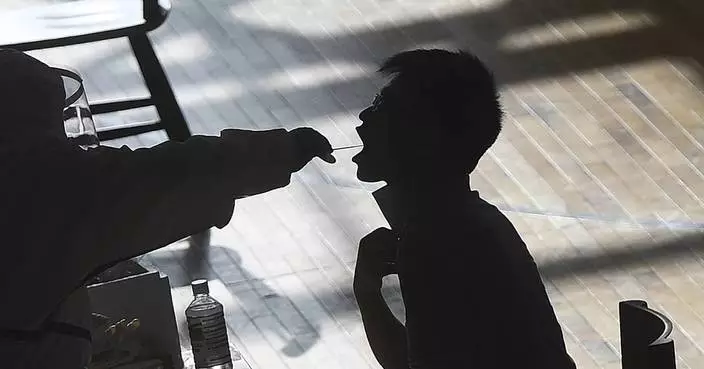TEHRAN, Iran (AP) — Iranians, like many around the world, are divided on what Donald Trump's next presidency will bring: Some foresee an all-out war between Tehran and Washington, particularly as other conflicts rage in the region. Others hold out hope that America's 47th president might engage in unexpected diplomacy as he did with North Korea.
But nearly all believe something will change in the U.S.-Iran relationship.
“Trump will use tougher levers against Iran," warned Ahmad Zeidabadi, a political analyst. “Iranian officials will keep rejecting him and that could make him escalate his pressure.”
And while Supreme Leader Ayatollah Ali Khamenei, who has final say on all matters of state, has repeatedly expressed his own disgust with Trump, Iran’s new reformist president has kept the door open to talks with Trump to seek relief from international sanctions to buoy a cratering economy. The Iranian rial, in a free fall for years, hit its lowest value against the dollar on Wednesday before slightly recovering.
The U.S. and Iran have had an adversarial relationship since Iran’s 1979 Islamic Revolution and the takeover of the U.S. Embassy and 444-day hostage crisis that followed.
Trump’s first term in office was marked by a particularly troubled period, when he pursued a policy of “maximum pressure” against Tehran. He unilaterally withdrew America from Iran’s nuclear deal with world powers, leading to the sanctions hobbling the economy, and ordered the killing of the country's top general.
Confirmation of Trump’s reelection came too late for most Wednesday papers. On Thursday, hewing to the official line, many decried the victory. The newspaper Hamshahri put an artist’s rendering of Trump in an orange prison jumpsuit and handcuffs under the headline: “Return of the murderer.” The hard-line Javan newspaper said it was “back to the crime scene.”
On the streets of Tehran, opinions varied more. Some feared a return to the low points of Trump's first presidency. Others expressed joy.
“I’m very happy that Trump has won because he is really a powerful man,” said Fatemeh Kaveh, 40. “I see him as a role model in terms of personality, and I always watch his stories (on social media), and I believe in him. I’m very happy he won.”
But the one opinion that matters above all in Iran’s theocracy is that of Khamenei, who has been the country’s paramount ruler for six American presidencies. He has made his views on Trump clear.
“I do not consider Trump as a person worth exchanging any message with and I have no answer for him, nor will I respond to him in the future,” Khamenei told the late Japanese Prime Minister Shinzo Abe in 2019. Those comments came a year after Trump withdrew the U.S. from the nuclear accord, which offered Iran relief from international sanctions in return for restrictions meant to prevent it from building an atomic bomb.
Then came Trump’s decision to assassinate Revolutionary Guard Gen. Qassem Soleimani, a prominent figure within Iran, in a 2020 drone strike in Baghdad.
Khamenei’s personal website still hosts a video that imagines Trump being killed in an Iranian drone strike as he plays golf with former U.S. Secretary of State and CIA chief Mike Pompeo. Both men have received additional protection over Iranian threats to their lives — and the country has been accused of hacking Trump campaign associates in hopes of hurting his prospects. Iranians have also not forgotten Soleimani’s killing.
“It is a good time for Iran to retaliate — the murderer of our hero has come back,” said Tehran resident Reza Solatani, 39. “He should eventually pay for his crime.”
The question now is how that hard-line approach will fare amid the economic crisis and other challenges.
A string of mass protests have escalated in the last few years, most recently with the 2022 death of Mahsa Amini and women rejecting the state-mandated headscarf, or hijab.
Iran remains locked in the Mideast wars roiling the region, and its leaders have threatened a retaliatory strike after Israel’s Oct. 26 attack. It allies are battered, including the militant groups of its self-described “Axis of Resistance,” like Hamas, Lebanon’s Hezbollah and Yemen’s Houthi rebels. Support for those groups while Iranians struggle economically has been a protest cry.
Trump's election means “peace will return to Lebanon and Gaza and Iran will not spend our money there,” said Zohreh Naghavi, a 36-year-old who works in a clothing store. "It is good news.”
Iranian President Masoud Pezeshkian, who will mark his first 100 days in office next week, campaigned on a promise of outreach to the West to lift sanctions over Iran’s nuclear program — which now enriches uranium to near weapons-grade levels.
On Thursday, Pezeshkian appeared to remain open to talks with Washington — even in the wake of Trump's victory — saying that “it doesn’t matter who has won the U.S elections.”
“We will in no way have a closed and limited approach in the expansion of ties with other countries,” he said, according to the state-run IRNA news agency.
That leaves open the possibility for negotiations. Trump in his first term famously courted North Korean leader Kim Jong Un. Some Iranians have imagined the president-elect doing the same in Tehran.
“Because Trump is a showman he might announce that he wants to talk to Pezeshkian in person," said Zeidabadi, the analyst. "Unfortunately, the problem is that (the government) can’t accept that. Even if some people in the government are interested in doing that, the majority of hard-liners won’t let that happen and this can make Trump more angry too.”
Still, some feel Iran already is at its breaking point.
“I think Iran has no choice but to make peace with Trump, considering the situation of the dollar (exchange rate) and the livelihoods of people and the high prices," said Sina Khaledian, a 32-year-old nurse. "There is lack of medicine and health care. They have to do this. I think the country’s capacity to endure has been exhausted.”
Gambrell reported from Dubai, United Arab Emirates. Associated Press writers Nasser Karimi and Amir Vahdat in Tehran, Iran, contributed to this report.
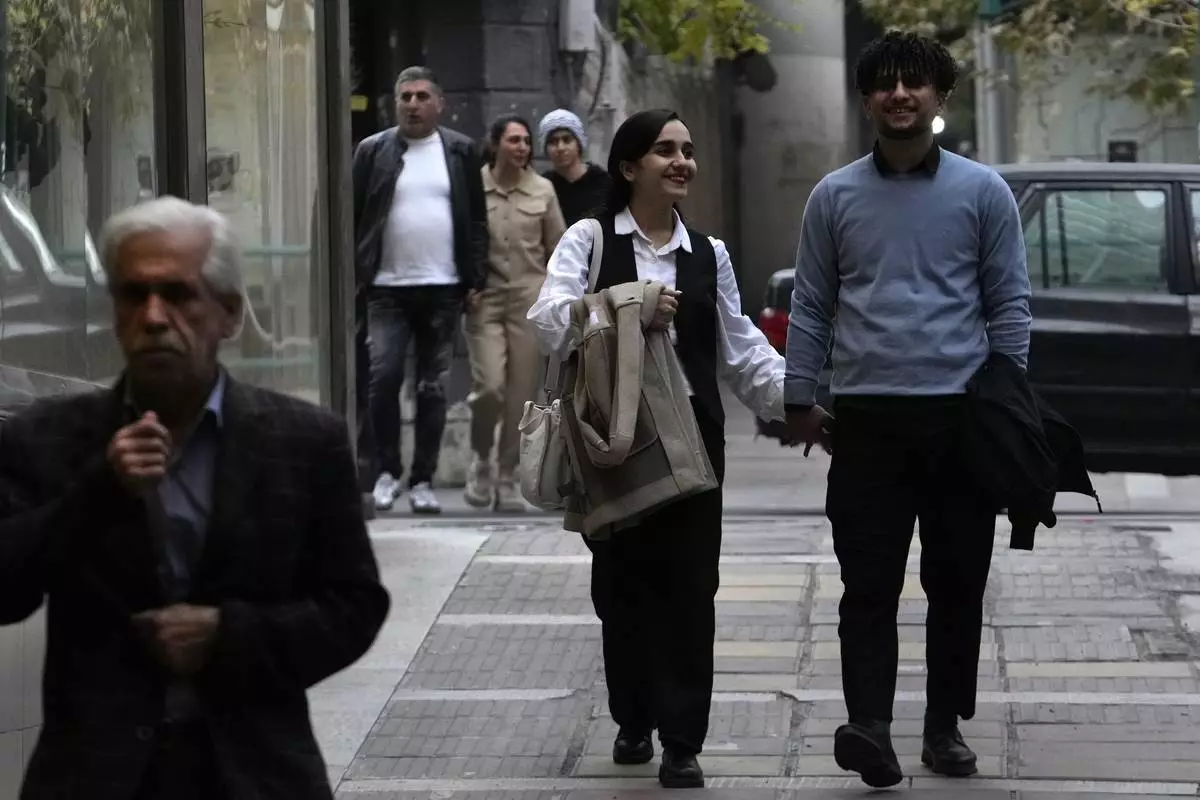
People walk on a sidewalk in northern Tehran, Iran, Thursday, Nov. 7, 2024. (AP Photo/Vahid Salemi)
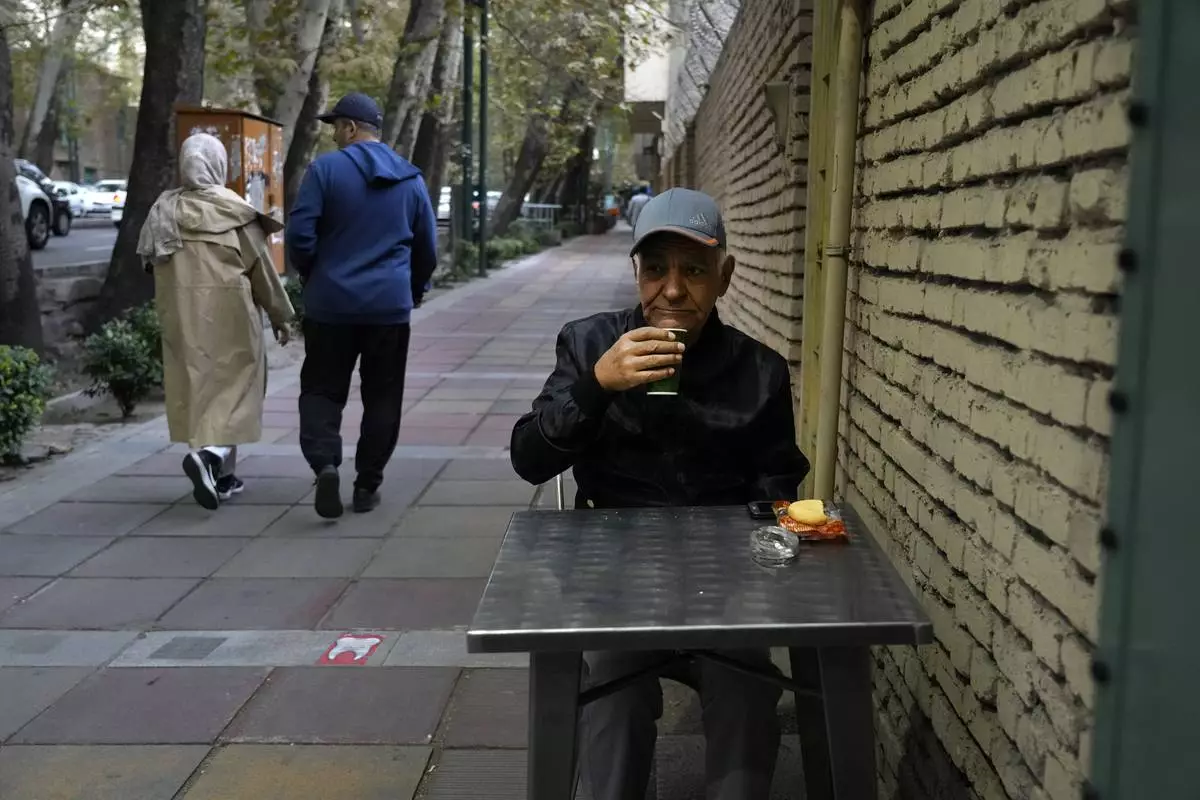
A man drinks tea in the alfresco dining area of a cafe in northern Tehran, Iran, Thursday, Nov. 7, 2024. (AP Photo/Vahid Salemi)
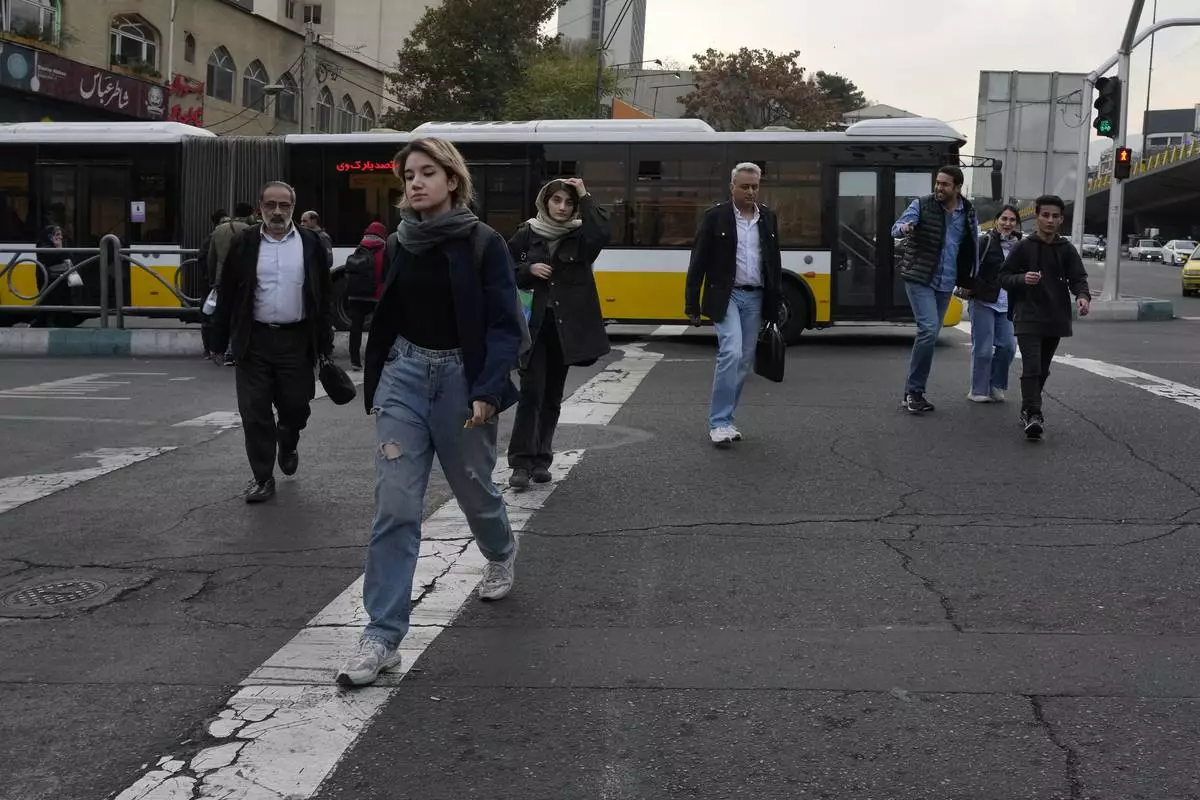
People cross an intersection in northern Tehran, Iran, Thursday, Nov. 7, 2024. (AP Photo/Vahid Salemi)
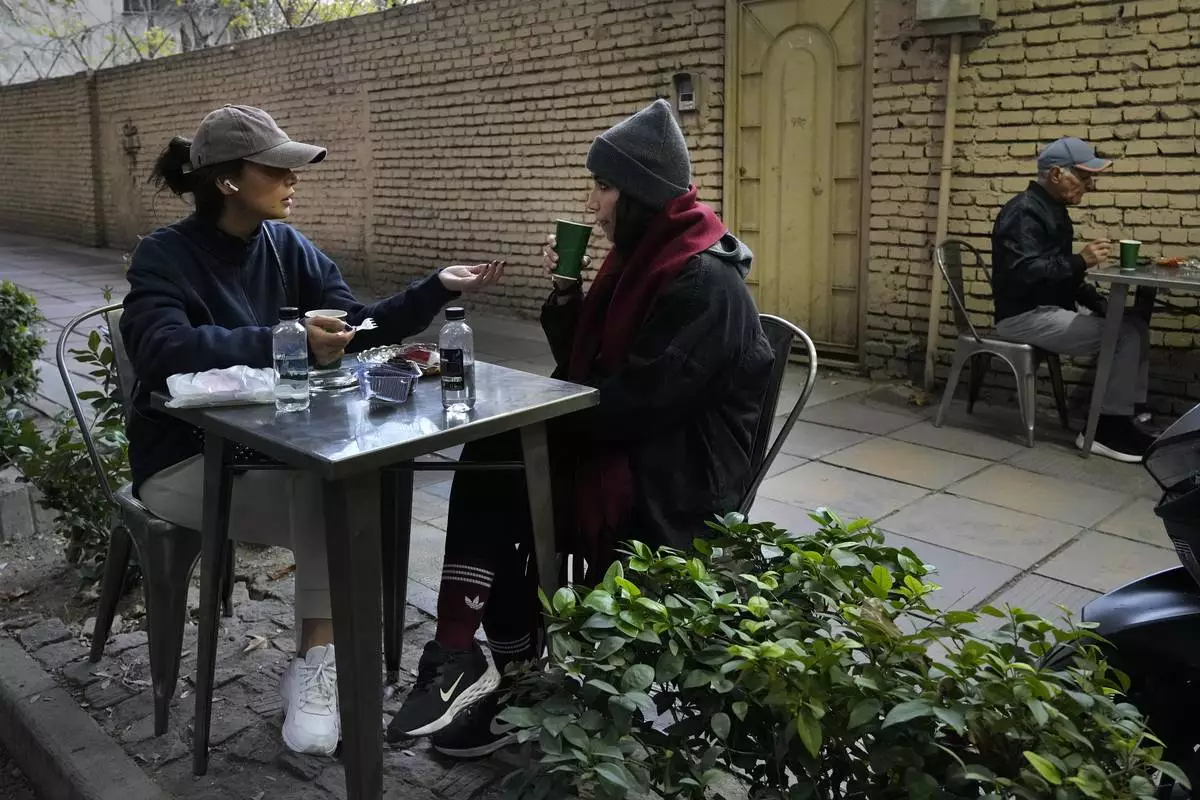
People drink tea in the alfresco dining area of a cafe in northern Tehran, Iran, Thursday, Nov. 7, 2024. (AP Photo/Vahid Salemi)
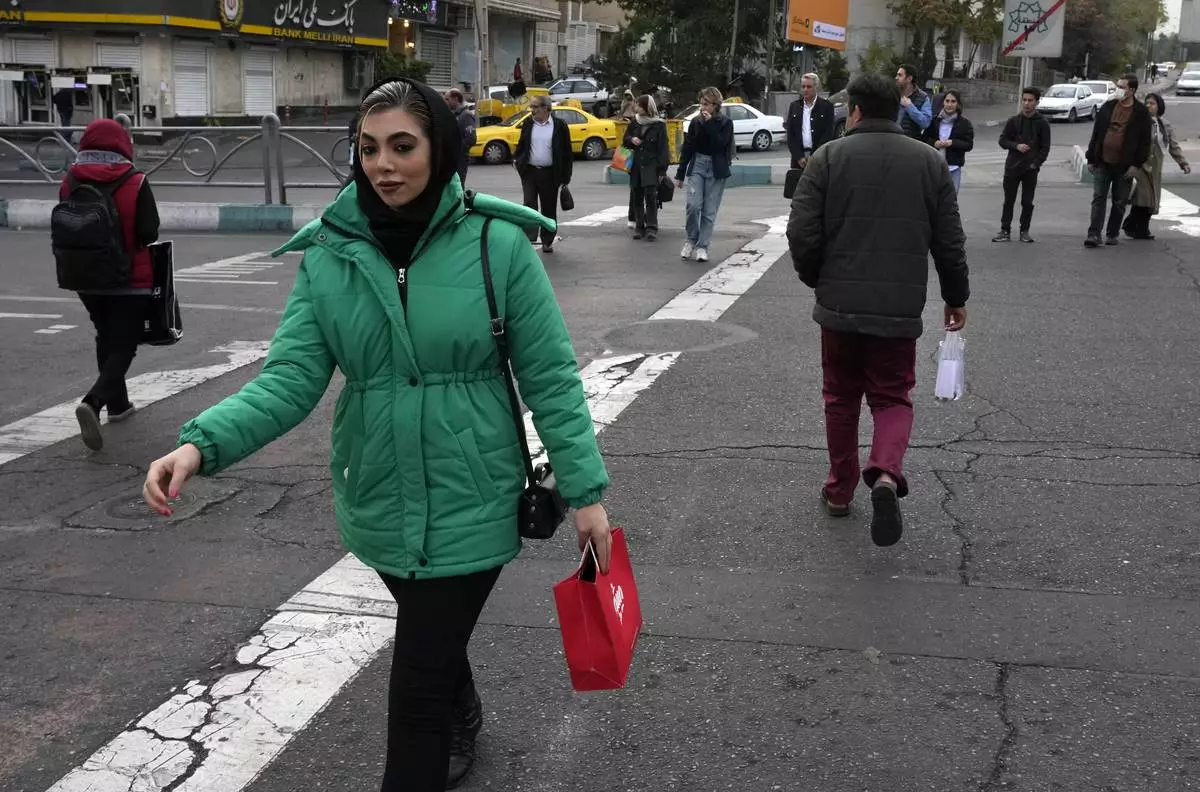
People cross an intersection in northern Tehran, Iran, Thursday, Nov. 7, 2024. (AP Photo/Vahid Salemi)
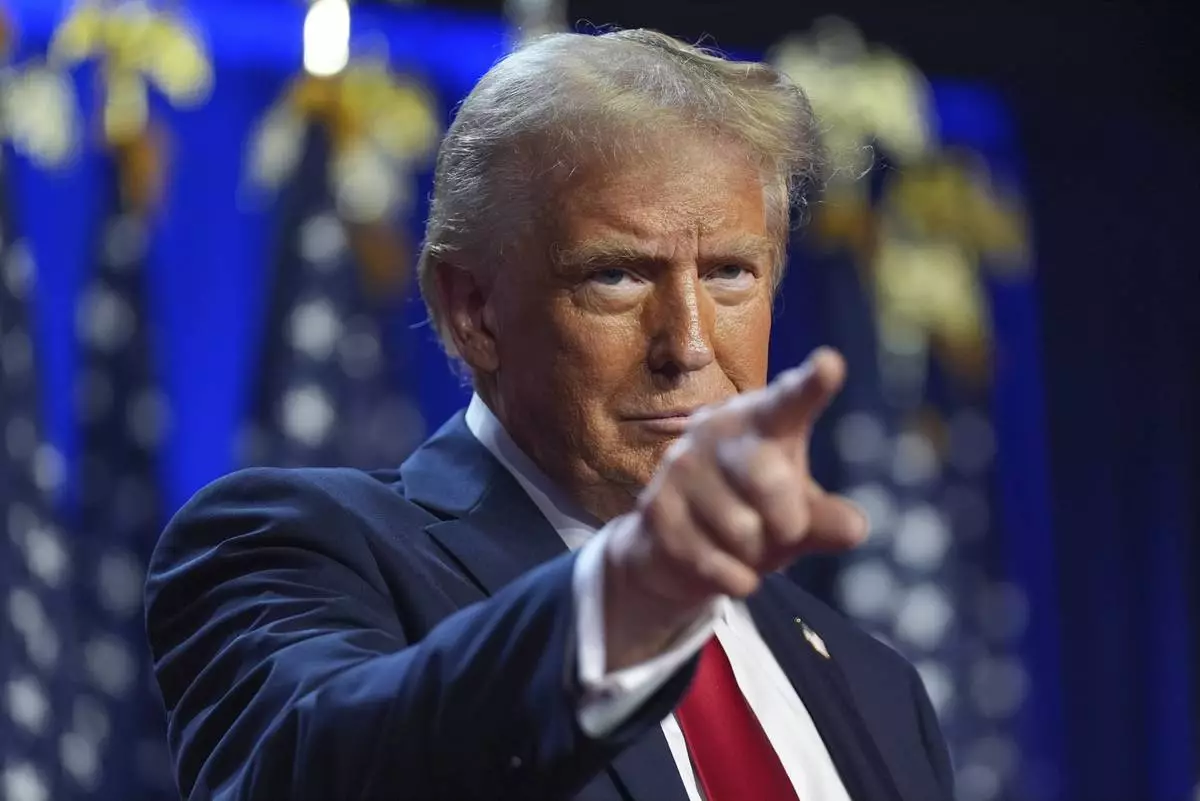
Republican presidential nominee former President Donald Trump arrives at an election night watch party at the Palm Beach Convention Center, Wednesday, Nov. 6, 2024, in West Palm Beach, Fla. (AP Photo/Evan Vucci)
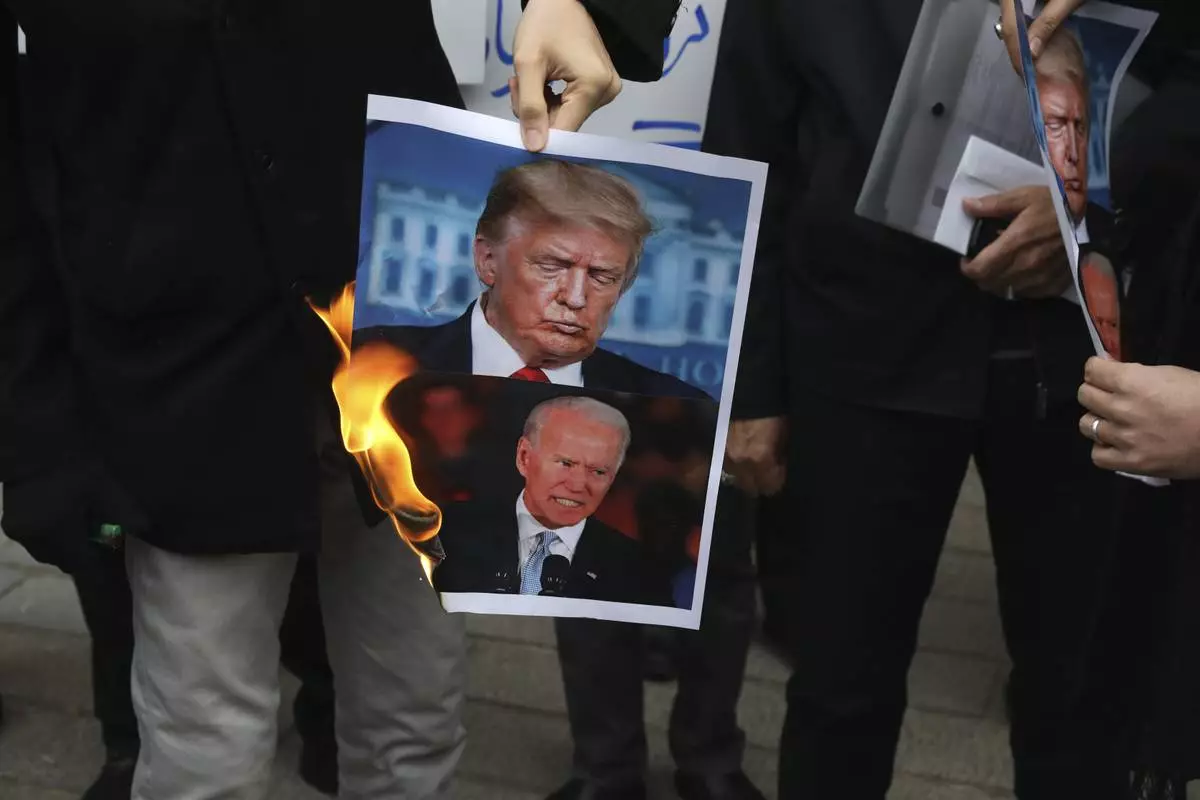
FILE — A group of protesters burn pictures of then-U.S. President Donald Trump, top, and then-President-elect Joe Biden in a gathering in front of Iranian Foreign Ministry on Saturday, Nov. 28, 2020, in Tehran, Iran. (AP Photo/Vahid Salemi, File)


